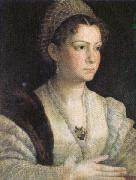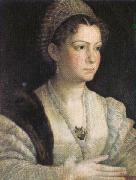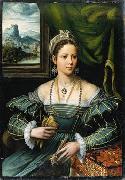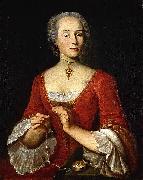Wholesale Oil Painting No Minimum |
|||||||||||
|
|
|||||||||||

|
|||||||||||
|
|
|
||||||||
|
|
||||||||
Bildnis einer Dame
Bildnis einer Dame Painting ID:: 75008 |
Oil on canvas and oil on pergament
cjr Oil on canvas and oil on pergament cjr |
|||||||
|
|
||||||||
Pietro, Nicolo diItalian, active 1394-1427 |
||||||||
|
|
||||||||
|
|
Bildnis einer Dame
Bildnis einer Dame Painting ID:: 76757 |
Date ca(00ca-1549)
Medium Oil on canvas and oil on pergament
cyf Date ca(00ca-1549) Medium Oil on canvas and oil on pergament cyf |
||||||
|
|
||||||||
Pieter de KempenerPedro Campana (1503-1586) was a Flemish painter of the Renaissance period, mainly active in Italy and Spain. His actual name was Pieter de Kempeneer, translated into French as Champaigne, and was also known as Peter Van de Velde. Born in Brussels, he trained there with Bernard Van Orley. His early life appears to have been spent in Italy, where he carefully studied the paintings of Raphael, and declared himself as his pupil. In 1530 he was at work at some scene-painting, representing a triumphal arch to be erected on the occasion of the coronation of Charles V, Holy Roman Emperor in Bologna, and he then left for Spain, on the advice, it is said, of Cardinal Domenico Grimani, and spent the rest of his life in that country, only returning to Brussels about 1563 or 1565. Between 1537 and 1562 he was associated with Luis de Vargas and the Italian sculptor Torregiano in establishing a school of painting in Seville, which eventually became the academy of the place; amongst the pupils educated in it was Morales. He painted for the monastery of St. Mary of Grace, Church of Santa Cruz, in the city, an altar-piece representing the Descent from the Cross (1548), which is now in the cathedral, having been removed there when the church fell into ruins. There are other works by the same painter in Seville Cathedral, especially two representing the Purification of the Virgin and the Resurrection; and the various churches of the city, S. Isidoro, S. Pedro, S. Catalina, and S. Juan, all possess paintings by this artist. One of his last works was the restoration and repainting of a chapel belonging to Hernando de Jaen, an important resident of Seville. Murillo requested that he be buried near Campana's picture, and his burial took place in the Church of Santa Cruz, close underneath the Descent from the Cross, but the whole building was burned to the ground during the Napoleonic Wars, and the tomb perished. |
||||||||
|
|
||||||||
|
|
Bildnis einer Dame
Bildnis einer Dame Painting ID:: 77338 |
16th century
Medium Mischtechnik auf Pappelholz
Dimensions 113.7 ?? 79 cm
cyf 16th century Medium Mischtechnik auf Pappelholz Dimensions 113.7 ?? 79 cm cyf |
||||||
|
|
||||||||
Johann Jakob Ulrichimpression atist 28 Feb 1798 -- 17 March 1877. Swiss painter. He first studied under his father and then in Paris in 1822 in the studio of Jean-Victor Bertin. As a student he concentrated on unusual lighting effects in his landscape paintings well before they became a hallmark of the precursors of the Impressionists. In 1824 at the Salon in Paris he first saw paintings by Constable. On a trip to Italy in 1828 he did studies en plein air as preliminary sketches for his studio paintings. His early paintings emphasize brilliant colour, low horizons and scientific observation of cloud formations in a manner similar to Constable's studies, which he actually saw on visits to England in 1832 and 1835. Like Eugene Boudin, Ulrich was interested in poetic evocations of sun, water and effects of atmosphere rather than in the precise delineations of topography typical of Swiss art of that period. From 1824 he showed regularly at the Salons in Paris and in 1837 he returned to Zurich. Because the Swiss public was reluctant to accept his freer, |
||||||||
|
|
||||||||
|
|
Bildnis einer Dame
Bildnis einer Dame Painting ID:: 81257 |
1745(1745)
Medium Oil on canvas
Dimensions 81 x 67 cm (31.9 x 26.4 in)
cyf 1745(1745) Medium Oil on canvas Dimensions 81 x 67 cm (31.9 x 26.4 in) cyf |
||||||
|
|
||||||||
|
Johann Jakob Ulrich impression atist 28 Feb 1798 -- 17 March 1877. Swiss painter. He first studied under his father and then in Paris in 1822 in the studio of Jean-Victor Bertin. As a student he concentrated on unusual lighting effects in his landscape paintings well before they became a hallmark of the precursors of the Impressionists. In 1824 at the Salon in Paris he first saw paintings by Constable. On a trip to Italy in 1828 he did studies en plein air as preliminary sketches for his studio paintings. His early paintings emphasize brilliant colour, low horizons and scientific observation of cloud formations in a manner similar to Constable's studies, which he actually saw on visits to England in 1832 and 1835. Like Eugene Boudin, Ulrich was interested in poetic evocations of sun, water and effects of atmosphere rather than in the precise delineations of topography typical of Swiss art of that period. From 1824 he showed regularly at the Salons in Paris and in 1837 he returned to Zurich. Because the Swiss public was reluctant to accept his freer, Bildnis einer Dame 1745(1745) Medium Oil on canvas Dimensions 81 x 67 cm (31.9 x 26.4 in) cyf |
||||||||
|
|
||||||||
|
Prev Next
|
||||||||
|
|
||||||||
|
Related Paintings to Johann Jakob Ulrich :. |
||||||||
|
|
||||||||
|
CONTACT US |




